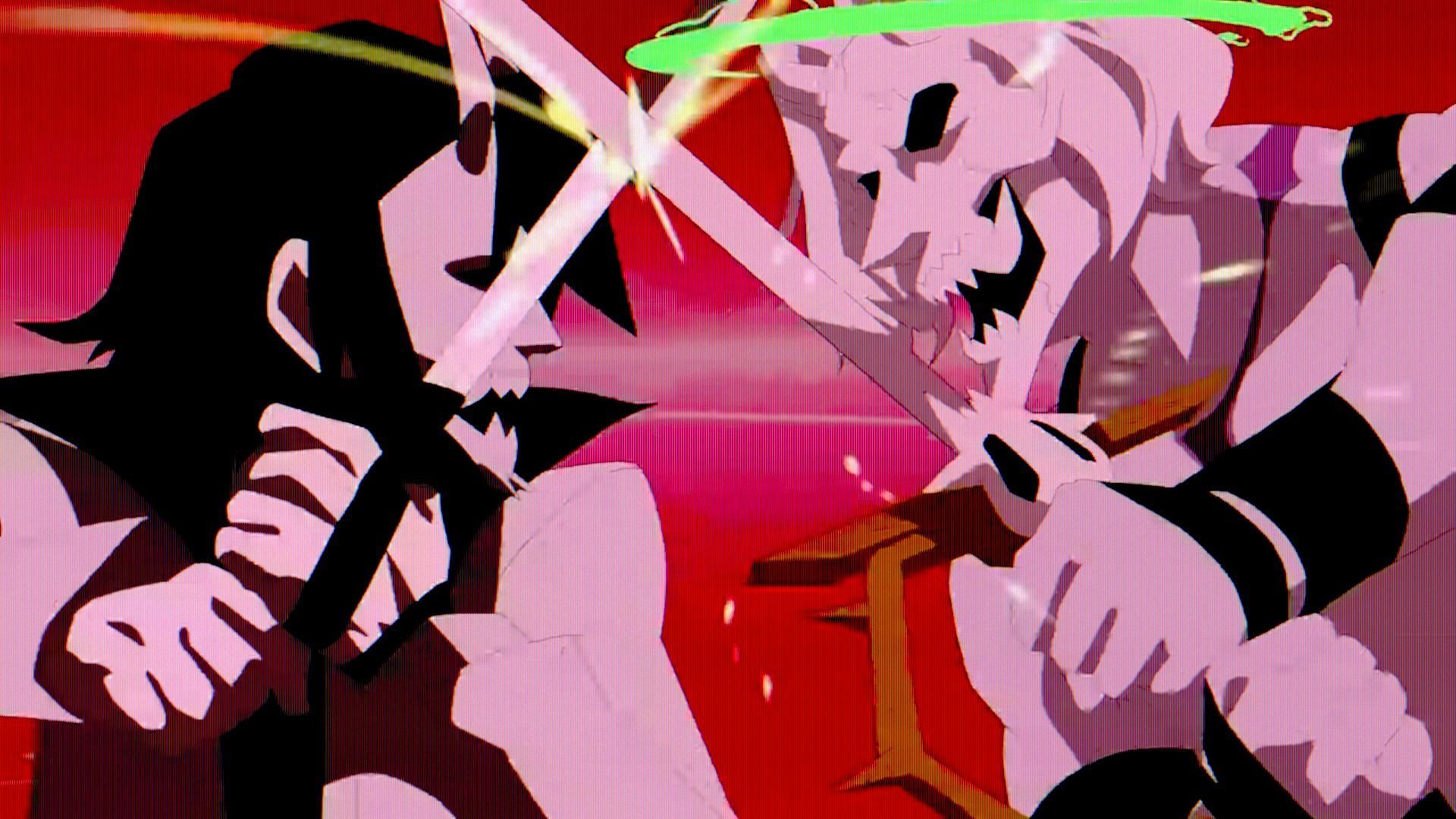I was excited to pick up Neon White when I saw its trailer, even though I have never been good at the kind of game that requires completing objectives as fast as possible. There is something deeply alluring about the way the title goes about the basic mechanics through card-based weapons, wacky characters, and refreshing levels.
The indie game quickly became one of the best I have played this year and one that I thoroughly enjoyed from start to finish. Thus, I was delighted to get the opportunity to engage with Ben Esposito of Angel Matrix, regarding the making of Neon White, its mechanics, and the burning question of whether a multiplayer option was ever considered.
Looking for Crossword hints & solutions? Check out latest NYT Mini Crossword Answers, LA Times Crossword Answers, and Atlantic Crossword Answers
Ben Esposito talks about the inspiration, influences, and developmental journey in bringing Neon White to life
Q) To start off, will you please describe Neon White for our readers?
Ben: Neon White is a single-player speedrunning FPS, where you can sacrifice your guns for godlike parkour moves. It's a bit of a first-person shooter, platformer, time trial game, and puzzle game. All that and an anime-inspired visual novel about dead assassins in Heaven.
Q) Neon White resists concrete labels and categories that players can tag it with and sort out. There is a combination of various mechanics, including puzzle-platforming, a card-based system of guns, and a lightning pace. What was the inspiration and influence behind making a title like Neon White?
Ben: Neon White's presentation is highly influenced by Y2K-era video games and anime. It's meant to be the most 'video-game' video game we could possibly make. However, it's not really based on a particular game or genre. Some influences include Jumping Flash (the grandfather of first-person platformers), Super Monkey Ball, Team Fortress Jump Maps, Danganronpa, and Lovely Planet.
Q) I think one of the strongest points of Neon White is how fun it makes the act of replaying and grinding. Rather than it being tedious, players are egged on to do better and figure out a faster way, especially with the inclusion of a leaderboard. Did the team envision the game to be like this from the very beginning? And, what was the thought process behind having a card-based shooting?
Ben: It all started with a prototype I created in 2018, a card-based FPS. I wasn't happy with how it was working out, but at the last second, I tried out the concept of discarding a card in order to get a special ability (the very first one was the Elevate card, which gives you a second jump).
I sent the prototype to a friend, and an hour later, they sent back a list of their best times. We were hooked on competing with one another to use the cards in more efficient ways.
The game is ultimately built from the ground up with replaying levels and competing for leaderboard times in mind. It's not a bonus feature, it's the core of the game itself!
Q) Talk to us about the developmental journey behind the title, especially the level designing, soundtrack, and art style. Are there any interesting incidents or tidbits that you would like to share?
Ben: We had to remake the environment art part-way through development. We always felt that the game needed to run at a high framerate, so that it would feel responsive.
When we partnered with Nintendo to launch on the Nintendo Switch, we weren't sure if it was possible to get the game to run at a consistent 60 frames per second. But after a big collective effort, we were able to rebuild the art to look even better than before and run consistently at 60fps.
As a bonus, the game runs way better on PC!
Q) I felt the theology-inspired narrative along with a lot of optional backstories did not need to be completely figured out and understood to fully experience the title. Was this an intentional move on the developers’ part?
Ben: Time-trial games require a high level of focus to improve your times, which can often become exhausting over 10 to 20 hours. We created Neon White's unique setting and narrative to provide a respite from the medal chasing that can burn people out.

I think the characters and settings add dimensions to the game, but we built the game with the understanding that some players prefer to focus only on the levels. It was important to us that it was possible for those players to still have a good time, even if I can't relate to them.
Q) Given the leaderboard system in place, did the team ever discuss a multiplayer option while developing Neon White?
Ben: We are a very small development team, so to preserve our sanity, all talk of multiplayer is quickly shunned.
Q) Neon White has been met with an extremely positive response from both critics and players alike. What has been the team’s reaction upon seeing such feedback after launch?
Ben: We were surprised by the critical reception. At the time of writing, it has a score of 90 on Metacritic, which makes it the fourth best reviewed PC game of 2022.
When we started developing it, we thought the game was so unconventional that critics would hate it, so we made no effort to cater to reviewers. It appears that may have actually worked to our benefit.
Q) Will we see more of White, other characters, and the world of Neon White in the future?
Ben: We don't have any concrete plans right now, but I'd love to see more!
Are you stuck on today's Wordle? Our Wordle Solver will help you find the answer.

